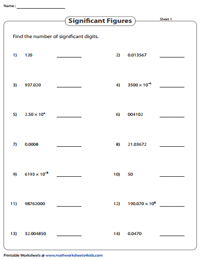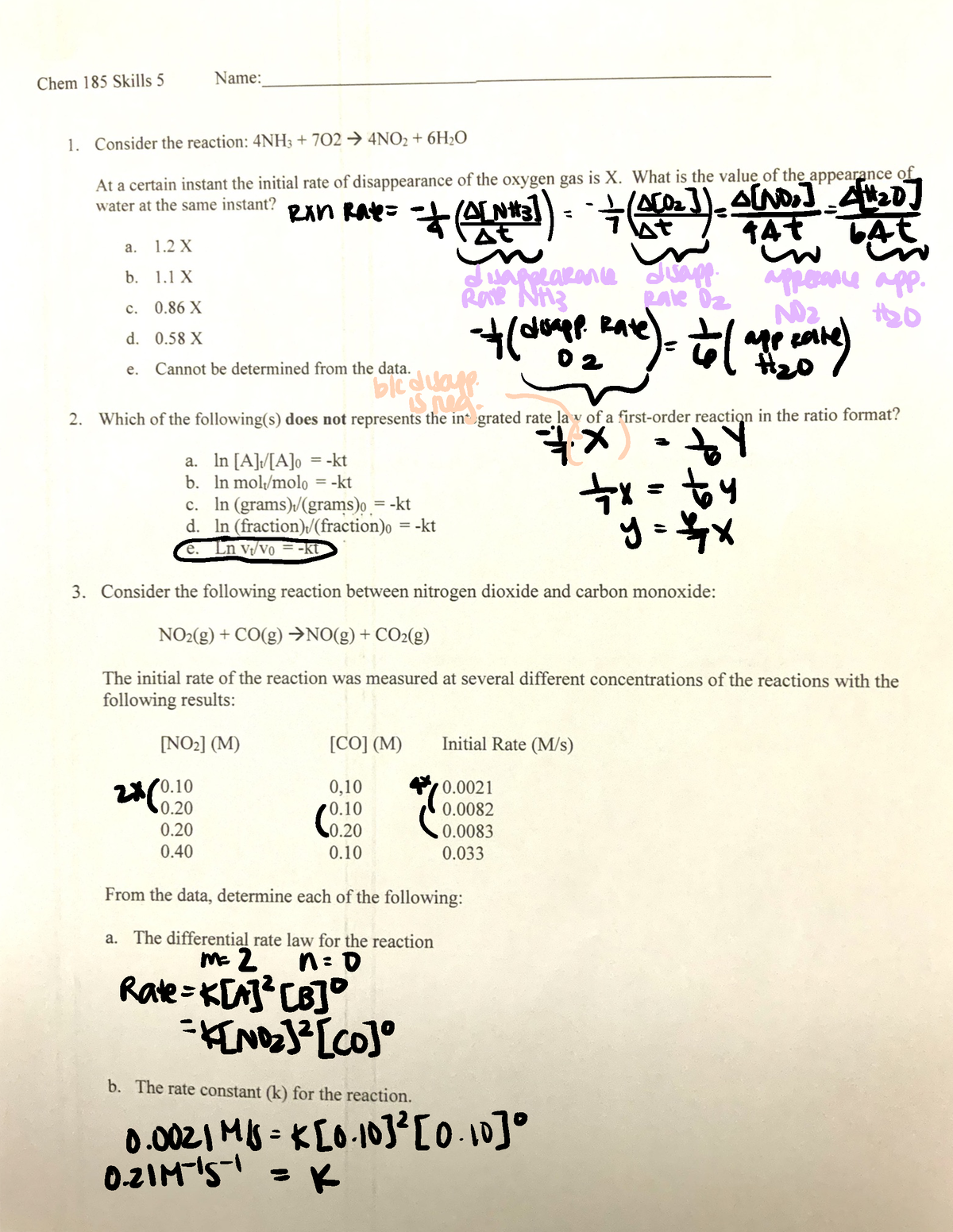5 Essential Tips for Significant Figures Mastery in Worksheets

Working with significant figures is crucial in scientific and engineering fields, where precise measurements are paramount. Whether you're calculating in a laboratory or designing components in engineering, understanding significant figures helps in reducing errors and ensuring precision. Here are five essential tips to master significant figures in worksheets and beyond.
1. Understand the Rules of Significant Figures

Before diving into any calculations, a solid grasp of the rules governing significant figures is essential:
- Non-zero digits are always significant.
- Zeros between non-zero digits are significant. (e.g., 3003 has 4 significant figures.)
- Leading zeros are never significant. (e.g., 0.0034 has 2 significant figures.)
- Trailing zeros in a number with a decimal point are significant. (e.g., 3.20 has 3 significant figures.)
- Trailing zeros in a whole number are ambiguous; context matters. (e.g., 300 can be 1, 2, or 3 significant figures depending on notation like scientific or exponential.)
2. Practice With a Range of Numbers

To truly understand significant figures, you need to practice:
- Work with decimals, whole numbers, and numbers in scientific notation.
- Identify how many significant figures are in numbers like 0.0025, 500, or 4.0 × 104.
- Perform operations and determine the least number of significant figures for rounding.
🔍 Note: Consistent practice with different types of numbers will refine your ability to quickly recognize significant figures.
3. Use Proper Rounding Techniques

Significant figures often require you to round your results:
- When rounding, follow these steps:
- Identify the last significant figure.
- Look at the next digit; if it’s 5 or higher, increase the last significant figure by 1.
- Remember, in multiplication and division, the result should have as many significant figures as the least precise number involved.
- For addition and subtraction, the result should be rounded to the least number of decimal places involved.
4. Pay Attention to Measurement Devices

Measurement tools influence significant figures:
- Know your equipment’s precision. A digital scale might show 2.345g with 4 significant figures, whereas an analog balance might only be precise to 2.3g.
- Understand that any measured or estimated digit contributes to the significant figures.
- When reporting data, ensure you convey the precision accurately.
5. Practice with Real-World Examples

Theoretical knowledge isn’t enough; real-world applications solidify understanding:
- Create worksheets or seek out existing ones with practical scenarios like volume calculations, chemical dosages, or machine tolerances.
- Engage with examples from your field of study or work to see how significant figures affect outcomes in real situations.
Mastery of significant figures involves both understanding their theoretical underpinnings and applying them correctly. Here are a few practical steps to solidify your knowledge:
Developing Consistency

Consistency in handling significant figures ensures data integrity:
- Regularly assess your work for consistency in significant figure application.
- Use tools like spreadsheets or calculators that can handle significant figures automatically.
| Scenario | Operation | Example |
|---|---|---|
| Addition/Subtraction | Round to least number of decimal places | 2.34 + 1.2 = 3.54 ≈ 3.5 |
| Multiplication/Division | Round to least number of significant figures | 3.0 × 2.13 = 6.39 ≈ 6.4 |

🔬 Note: Always double-check your calculations to ensure they adhere to significant figure rules, especially in real-world applications where precision can have serious implications.
Applying in Context

Application in practical scenarios is where significant figures shine:
- Simulate or engage with real laboratory experiments or design projects.
- Discuss with peers or mentors how significant figures influence project outcomes.
In wrapping up our exploration of significant figures, it's clear that mastering them is not just about following rules but understanding their implications in measurement, calculation, and data reporting. Accurate application of significant figures ensures data reliability, precision in scientific experiments, and compliance with engineering standards. Remember these tips when working through your worksheets or conducting experiments:
- Know the rules of significant figures.
- Practice with a variety of numbers.
- Use proper rounding techniques.
- Consider the precision of measurement devices.
- Apply what you've learned in real-world contexts.
Why are significant figures important in scientific research?

+
Significant figures ensure the precision and accuracy of experimental results by reflecting the limitations in measurement tools and the reality of how data is collected.
How do I teach significant figures to beginners?

+
Start with basic rules, use relatable examples, and provide exercises with immediate feedback. Relating it to everyday life, like buying groceries with precise weight measurements, can help.
Can I have more significant figures in my result than my measurements?

+
No, your results should only have as many significant figures as the least precise measurement involved in the calculation to prevent reporting false precision.
How do significant figures affect engineering designs?

+
In engineering, significant figures dictate the tolerance levels of parts, ensuring that components fit together and function as intended within acceptable margins of error.
What’s the role of zeros in significant figures?

+
Zeros can be significant or not, depending on their position. Leading zeros, trailing zeros in whole numbers without a decimal point, and zeros between non-zero digits are generally significant.



